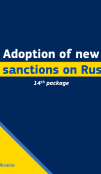EU Strengthens Military Capabilities

Today more than ever, the European Union must be able to quickly and effectively respond to crisis situations.
In order to ensure the operational and response capability of its headquarters and armed forces, the EU with its currently 27 member states must further develop the EU command and control processes and structures with a view to current and future missions and operations conducted on the basis of the Common Security and Defense Policy (CSDP), and proactively adapt these structures to meet new challenges and requirements.
Foundation of EU Crisis Response Capability: The Strategic Compass
In the wake of current security-political realities, the EU has vowed to significantly increase its crisis response capability and operational readiness by adopting the concept of the “Strategic Compass.” Based on a policy document ratified by EU member states in March of 2022, the concept marks a shift in politico-strategic focus; it seeks to enhance the European Union’s capabilities and capacities, enabling it to take quick, adequate and decisive action in times of crisis to guarantee the safety and security of its citizens. Intensive work is currently underway to implement the main goals of the “Strategic Compass” in practice.
EU Rapid Deployment Forces to Complement NATO
The Rapid Deployment Capacity (RDC) is scheduled to stand ready from 2025, expanding the EU’s military intervention capacity. Depending on the operational scenario, it can provide up to 5,000 troops to respond to various types of crises. The previous EUBG will continue to exist as well. The primary way in which the RDC expands upon the EUBG concept lies in a joint and combined approach that is complemented by modules and enablers, for example from the air, land, sea, cyber and special operations domains. The idea behind this expansion is to be able to respond to a significantly broader spectrum of tasks. In 2025, Germany will serve as framework nation assuming command and control of an EUBG under the RDC umbrella.
Elaborating on the topic, the Director General of the EU Military Staff and current Director of the MPCC (Military Planning and Conduct Capability), Dutch Lieutenant General Michiel van der Laan explains: “The EU is strengthening its military capabilities with the expressed goal to complement NATO, not compete with it.”
Military Planning and Conduct Capability (MPCC) - a Centralized Military-Strategic Command and Control Element in Brussels
The Military Planning and Conduct Capability, or MPCC, is scheduled to assume military-strategic command and control of the EU’s rapid response forces in 2025. In the future, the Brussels-based EU headquarters is going to be able to translate political requirements and decisions by the EU Political and Security Committee into military-strategic action.
The MPCC was formed in 2017. With the “Strategic Compass,” it experienced a change in its “Level of Ambition.” Since 2017, the MPCC has been tasked with planning and conducting all of the EU’s military missions. Upon establishing its full operational capability in 2025, it will also be capable of planning, and exercising command and control of one medium-scale, or two small-scale EU operations at a time, while still planning and conducting military exercises. With its capabilities in Brussels, the MPCC is designed to ensure the EU’s permanent and consistent military command and control capability in response to a potential crisis. Thanks to this, it will not have to make recourse to individual EU member states with their existing Operation Headquarters (OHQs). The existing planning and command and control processes remain largely unaffected, which is intended to ensure a rapid and permanent crisis response capability. By being embedded in the EU structures in Brussels, the MPCC can constantly exchange information with the EU’s civilian planning and control elements.
Previously, the EU - in order to ensure military strategic command and control - has relied on one of the five existing OHQs, which alternate between being available as a “preferred OHQ” for an EUBG during pre-determined long-term standby periods, or serving as a military-strategic headquarters to carry out the full spectrum of Petersberg tasks following an ad-hoc activation via the political level. The MN JHQ Ulm provides the nucleus, or core staff, for the activation of one of those five EU OHQs. The others are based in Larissa (Greece), Paris (France), Rota (Spain) and Rome (Italy).
For the purpose of operational/tactical command and control, the MPCC willhave control over the EUROCORPS in 2025 which is based in Strasbourg, France. Directed to cooperate with the MPCC at the operational level, the EUROCORPS will serve as a Force Headquarters (FHQ) capable of employing its own staff and command post to command “boots on the ground” as part of a mission in a theater of operations.
Current EU Operation “ASPIDES”
Operation “ASPIDES” is a good example of how quickly EU member states can translate political will into a military operation. The EU naval operation was launched to protect trade routes in the Red Sea and adjacent waters. The German frigate “Hessen” was deployed at the beginning of the operation. Since the MPCC will only establish its full operational capability in 2025, operation “ASPIDES” is currently being led at the military-strategic level by the Ulm Command’s “sister OHQ” in Larissa, Greece. A corresponding FHQ - provided initially by the Italian navy - exercises command and control at the operational/tactical level.
MN JHQ Ulm’s Long-Term Expertise for the EU:
Competence Range from the High Tactical to the Military-Strategic Level
The Ulm Command is a German headquarters with multinational participation featuring a total of 450 service members from five different countries. The MN JHQ Ulm Commander has also been in command of the NATO Joint Support and Enabling Command (JSEC) since 2018 - a unique constellation in the Bundeswehr. In 2018, the MN JHQ Ulm played a major role in establishing the JSEC and today is still tasked with providing fundamental support to this NATO headquarters.
Despite this fact, its EU commitment has been the Ulm Command’s main mission for over ten years. Coinciding with the German EU Council presidency, the MN JHQ Ulm once more assumed the role of “preferred OHQ” for the EU Battlegroup provided by Germany between July 2020 and March 2021. The Command previously assumed this task in 2012 and in 2016.
Core Competence and Mission: Operational Command and Control
Operational command and control means that the existing OHQs - joined by the MPCC from 2025 onwards - will continue to assume their military-strategic task of exercising command and control of an FHQ at the operational level. The FHQ’s role then is to ensure - at the subordinate level - the operational/tactical command of troops in an area of operations, featuring land, air and/or naval forces, in order to be able to carry out EU missions of pre-defined magnitudes and in a multinational setting.
At this moment, however, the MN JHQ Ulm’s concrete task is to respond to needs and requirements voiced by Brussels, and support the MPCC accordingly on its way to full operational readiness in 2025. This can be achieved by either deploying capabilities to Brussels or by providing capabilities from Ulm via the “reach-back” process.
In recent months, the Ulm Command was able to assist the MPCC with its long-standing and proven capabilities and capacities at a number of planning conferences, consultations and command post exercises. In 2023, it was also involved in adapting the EU response forces’ operational scenarios to the new security situation with an outlook to 2025.
With its mission clearly defined at the moment, the Ulm Command is doing its part to support the MPCC’s capabilities tailored to its intended tasks, while at the same time making a significant German contribution to improving and adapting the EU's crisis response capability.
Intensive Exchange Activities with the EU – A Brief Look Back
Continuous exchanges constitutes a critical and indispensable basis for cooperation within the EU community.
More specifically, the MN KdoOpFü/MN JHQ Ulm hosted the EU Commanders’ Conference in Ulm in 2021, adapted the Ulm command structure to current requirements in 2021, supported the exercises MILEX (military exercise) in 2023 and 2024, as well as the multinational troop-contributing nation conferences for the EUBG 2025 in Budapest, Zagreb, and Strasbourg. In addition, in late 2023, the EUMS Director of Operations, French Brigadier General Jean Philippe Leroux, was able to accept the EU contingency plan largely developed in Ulm from the Deputy Commander of the Ulm Command, Austrian Major General Reinhard Trischak. The EU contingency plan deals with a specific deployment scenario the EU rapid response force has to implement in a given region. For the first time since the existence of the EU, the objective of developing the contingency plan by a multinational planning group in close cooperation with the EUMS had been fulfilled. The cooperation took into account a realistic assessment of the capability and capacity requirements, including all logistic and administrative support requirements. These detailed planning documents serving to support potential operational scenarios further implement the EU's strategic compass for 2025.
For this reason, Major General Trischak deems the cooperation successful: "The EU is in high pioneering spirits these days, making great efforts to meet the current security challenges. Above all, this includes exercises preparing us for our role in 2025."
EU Exercise Series "MILEX" - Continuous Enhancement of the EU Crisis Response Capability
Exercises of the MILEX series are conducted on an annual basis, providing the Ulm Command with the opportunity to permanently keep rehearsing its internal skills on the one hand, and on the other, to externally support EU institutions and bodies in a proven way and exchange expertise.
Both foreign nations and Bundeswehr elements also profit from this exercise series, using it as a building block critical to preparing an EU commitment if and when called up as EU rapid response forces in 2025 since this is when Germany will again assume the role of an EUBG framework nation. Practical ground, air, and naval exercises the member states have laid down and agreed upon in the strategic compass will mainly be conducted in 2024.
The processes and procedures of cooperation between the various EU military bodies were most recently tested in the EU exercise MILEX 2023: The exercise was based on a fictitious, yet realistic scenario serving as a setting for practicing EU planning processes as well as military-strategic- and operational-level crisis response procedures.
During the initial exercise phase, the activities were focused on practicing planning processes shared between the MPCC in its capacity as a military strategic headquarters in Brussels and the subordinate FHQ, which was provided by a multinational joint Spanish-led staff in 2023. During the second phase, the exercise play dealt with planning the deployment of troops to a fictitious crisis area, and was supplemented by exercise injects while the FHQ was exercising command and control of the local military crisis response forces from Italy, France, Portugal, Romania, Lithuania, Ireland, and Spain in a fictitious theater of operations.
Conducted under the command and control of the MPCC, the exercise MILEX 24 will also pursue the goal to present and confirm the EU as a credible military actor, especially with a view to 2025, by which year the rapid deployment capacity (RDC) is scheduled to be fully operational. This year's exercise MILEX 24 will again be subdivided and conducted in different phases:
In early April, MILEX 24 kicked off with a four-week command post exercise (CPX) involving the EUROCORPS in its function as the designated FHQ for the EUBG 2025. In the second half of the year, the exercise INTEGRATED RESOLVE 24 and the military exercise EUROPEAN CHALLENGE 2024 will complement the exercise play and include practical exercising in military training areas. The German-led EU crisis response forces mainly provided by the German 23rd Mountain Infantry Brigade headquartered in Bad Reichenhall will participate in these exercise activities.
Putting it in a nutshell, Major General Trischak comments, "These exercise series provide the Ulm Command with a golden opportunity to effectively employ the specific skills and expertise of our experts at different levels, which means supporting and strengthening the EU institutions."





